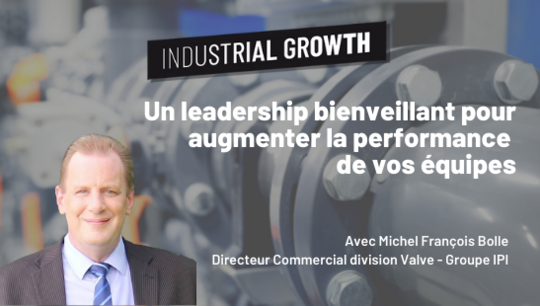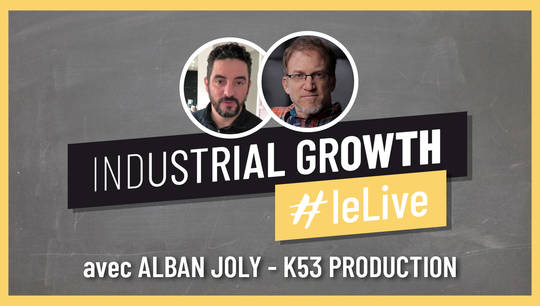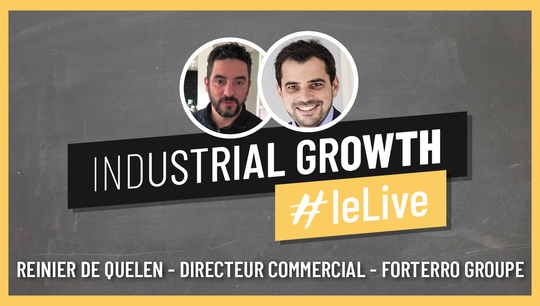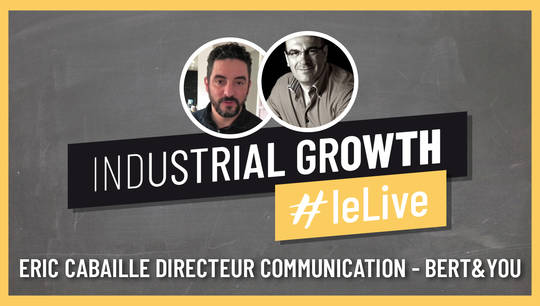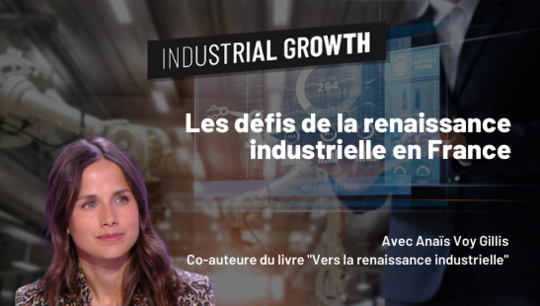What's the Inbound PR ?
(KARIM) - Industrial nation today I am with Iliyana Stareva. Can you introduce
yourself to an audience?
(ILIYANA) - Thank you so much for having me. My name is Iliyana I currently work in the partner program team at HubSpot where we design better engagement with all of our terrific partners like you guys and I come from a PR background I spend a good few years working in PR and digital communication across Germany and the UK and I are right now based in Ireland. I've been absent for the last four and a half years and I published my first book in my PR just last year.
(KARIM) - Great book. We are going to talk about it. I know something you've done at the top spot is working a lot with agencies like a like mine though you have a lot of agencies on Europe to grow their business. What have you learned from working with it? With such a big number of agencies those last year ?
(ILIYANA) - So I spend my first two and a half years probably at HubSpot working very closely with. I would say about 200 250 of our partners across all of Europe a lot from Germany people from the UK from Norway. So a lot of agencies and their sort of stuff that I've learned I will definitely say that we in Europe are very much ahead of the game and we do like to adopt new things such as inbound marketing for example. So it's been terrific to see how a lot of agencies have jumped on that wagon and have completely redesigned their business with new services around inbound and around our HubSpot software to help clients grow better. I think the key thing that I probably learned for agencies and I would say that applies to any business is that the ones who succeeded in continues to exceed today were the ones who almost chose an area to specialize. I'd like something to focus on doing that really well build expertise around it you talk leadership around it like something that other clients would know them about and then talk remarkably about them. So I think that applies to any business sense and I saw that firsthand. So that's probably my biggest learning.
(KARIM) - My hope is that because we tried to specialize a lot. No of this is something I agree with you can be the right solution for everybody. You have to choose from. And I think when you have a focus you can sell your product or your service better with a bit surprised with a better was better mileage margin on. I agree 100 percent with you
(ILIYANA) - Absolutely. You can be excellent at everything.
(KARIM) - Yes I am happy to hear from you that in Europe where we are we are in advance where we are.
I think to yourself well that was always the first to adopt the new thing.
Well if you think about the way I'm explaining this it really goes into the whole world rate like the US are often ahead of things and ahead of things that were developed over there. Like if you think about HubSpot, where an American company is about marketing inbound in general, comes from the US. So yes they are the first one to jump on the bandwagon. I will definitely say that at this time I think the UK in the Nordics and like other countries as our jumping really quickly on new things. I think where the adoption is slower and not as far ahead is obviously if we look at countries in Asia in Africa and Latin America. Different adoption there a different stage. You know we talk about emerging markets versus developed markets over there.
(KARIM) - So. So there is a big market for inbound agencies in Europe
(ILIYANA) - Yes absolutely.
(KARIM) - I definitely think so yes we can see that for example in France when we started we were on maybe a three or four spots but Miles four years ago on today the more than 100. But now in only three years of that sort.So it's sure how the market on the business is evolving here and the inference.
(ILIYANA) - Yeah absolutely. And we've seen that everywhere and, to be honest with you, I think it's because customers demand it like customers and clients they want better results for their business they want new models that work well with everything that's happening in technology and in digital nowadays. And it's just normal that agencies are trying to evolve based on customer needs.
(KARIM) - Something I wanted to ask you you've walked a lot with agencies on their hold on. I know that you will know that you are not the only person involved in the partner program. But I think you are a little bit modest because I know a lot of good things about the value you help agencies to solve their problems. I see similarities between your HubSpot develop a partner for them with agency and whole manufacturing companies should develop a program with that with a partner.
We can see in manufacturing that a lot of companies are other maybe 50 percent of their business done with the partners. Have a lot of business done with partners but I feel that they are still working with them. Like him or not school the way of working out. What advice would you would you give to companies that want to to build a strong partner program with distributors like the one, you have built with agencies at HubSpot.
(ILIYANA) - Sure. I would say that the number one advice released to be partner first. What happens in a lot of companies that are trying to build programs where Faris types of partners right.
Like obviously manufacturing is very different than what we do is they think about themselves and think they think about okay. We as a manufacturer. This is what our goals are. This is what we want to get out of it whereas the focus really needs to lie on what's in it there for the partner rate is the same if you're serving customers what's in it for the customer or what's in it for your prospect. What's in it for your buyer. So you're trying to speak their language and you're trying to design a program that is obviously going to be a win for you.
But at the same time, it's gonna find a sweet spot. So there really really is the win for the partners. One thing we've done and I've particularly worked on I have sought out a lot has been to define the partner lifecycle.
When I say partner lifecycle is really around what was the process for us to start working with the partner. What's the process for when partners join the program and they get onboard and start working with us versus what's the process for these partners to scale and achieve even more success by being our partners. So.
Again it really goes back to being partner first but then also ensuring that your goals as a company align with the goals of that partner. So there is a benefit for both. So instead of just thinking about "me me me" or my company, you need to think about that success of your partners very heavily. That's the only way for you to involve them and run a successful partner program. Obviously, there's a ton of things and tiny little details around like how does it works and all these processes and systems and how do we engage with these partners and will do we hired to do that and like technology ... Lots of questions to be asked, but only know you want to know how does your strategy for growth align with the strategy for growth for those partners.
(KARIM) - This is a great advice. I see that onboarding part is something very important. And then I don't see a lot of manufacturers doing it well. I think that there is a lot to say about how you can manage distributors an partner on this kind of business.Maybe you could write another book about this.
(ILIYANA) - Maybe that's going to be my next book but it is the same as right now. I've done a lot of research when it comes to digital and digital transformation lately. And like everywhere online you hear about the customer journey and customer journey and Journey mapping and you have to scale costs up to a buyer's journey and hubspot too. And I think the same the same way applies this applies to any persona right. So, in this case, the partner would be a persona. So what is their journey? That's what you're trying to define and step by step through that journey. You want to enable it's like whether that's going to be with resources or technology whatever that looks like you want to make sure you define it and you want to make sure you have the answers and resources into clergy to go through all the steps of that journey.
(KARIM) - Yeah, it's a good great advisor. We have a lot of companies for example who are thinking about to go for e-commerce website and they are doing get though to discuss the subject with their partners and I saw companies will even launch a new brand to go Hayden. They don't want that but now I know that they are launching an e-commerce platform and they're. This is great. This is a great mistake. It's it has to do with what you have told us. You need to define the Partner's Journey. You need to to see oh you can win with your partner. It's not only about you or me my company. You have to align your goals with your partners.
So this subject the first subject I wanted to have you on this show. It's about a press relations public relations. What's P is about.
(ILIYANA) - I'll give you the short answer on PR and PR. I think you mentioned just before we jumped on this call about how PR is bad. Well, Piers that really bad PR is traditionally has been about building relationships with important publics. And then by that improving the reputation of an organization.
So PR has really been about this whole, almost concept of word of mouth getting other people to talk positively about you and like increasing your share voice so to say and generally, you know your reputation and how people think about you and see your products in the company.
So traditionally PR has been a lot about PR people working with the media with journalists in basically ensuring that there is coverage on certain topics certain you certain products or services or whatever. For companies in various media outlets then be newspapers or TV or radio or whatever. And that's been very much the traditional view of PR which unfortunately has kept as being the same for years and years. So the PR industry has been slow at evolving and we know nowadays that there are different types of media their different types of influencers and also what the inbound preaches is all about your own media right. Like your own website your own blog your own social channels. So for you to build a reputation for you for other people and prospects and customers to find you, you don't need to go through the media anymore. You can go directly to those customers. And so what PR is not yet leveraging is just learning to do a lot better nowadays is to go through to use different types of media. Right. Like not just journalists ... But then also working with a lot of bloggers and influencers and then using the own channels of clients or of their own organization as well. And so PR still remains.
Focused heavily on content. I'd say that PR people want the best content creators that are there they're the best storytellers. And I think without storytelling, no company can actually be successful when it comes to content and old media and everything just because nowadays it's content the way that you get these content the way did you get found?
(KARIM) - So if I understand that you first need to be your own media you need to to build a strong brand. So branding is not dead too. Branding still something important but, you don't build the brand today like built it few years ago. Another thing I just hear from you to it's not only the relation with journalists with big media. You have to integrate all of those people. We may talk about too. What does it take place in your marketing strategy as a company or do you incorporate this because you need to talk with your customers but you need to talk also with kind of people who can we built this on the marketing strategy ?
(ILIYANA) - Yes. So I think that really depends on the larger goal of the company and the type of people you have working in the company. The larger companies typically they will have marketing departments NPR departments. So I think that there is definitely a need for better alignment when it comes to who does walk. And in terms of really you know we are all on the same team we are all working towards the same goals and stuff. But I do believe that when it comes to content creation and specifically content creation for working with influencers or journalists PR people are better suited to do that and more than the marketing department. And also because PR people are naturally driven to build relationships and our world still those walls around relationships right. Like I mean if someone's your friend, of course, they'll do you a favor or of course, they're at least listen to you whereas if it's someone you reaching out to them they'll probably ignore you. Right. They're not going to pay attention to you because they don't know you. They don't have any relationship either side with them. So it kind of depends. But I think he all goes back to the point. What are our goals as a company what do we want to achieve? And based on that. what type of media types should we be using so when we talk about media types. There is a peaceful model so paid or cheered and owned. So as a company if you want to play in the earned peace but that really goes to the whole story around media relations and journalists and influencers. So that's where a PR person would be best suited to help you.
(KARIM) - So finally we are talking about inbound. This is it some the same. Can I say them in English? This same "levier". I don't know to say this was in English.
This is the same way we build an inbound strategy. We need to apply inbound the inbound methodology to a to public relations to press relation.
So how do you start?
(ILIYANA) - Sure. That's exactly what my book is about. As I said I worked in PR before I joined Hubspot and then I started the HubSpot and really mastered the whole involvement pathology and I saw a link between the two in that link is really around content and measurement. So PR is great. As I said it's storytelling and content creation but PR is not that great when it comes to measuring the results and tying those results back to actual are a lie or actual sales. And I'm a firm believer that PR can contribute just so sales even if it's just a matter of PR chief certain coverage in media outlets and that type of coverage that started those stories are used by your sales departments when they talk to prospects. So inbound PR to me is just a different mindset to how PR people do the work. But in fairness, anybody could do inbound PR if they know the steps you appoint and the steps are number one define your goals and what type of that should PR chief.
Once you know that then you can go more strategically and tactically think through what are we going to do now. So I talk a lot about the whole concept of stakeholder persona. In my book, we know the term buyer persona or your ideal customers and prospects from in the marketing but the same applies to PR. So PR is very unique because PR can tackle the buyer personas but then also the media personas in which all the journalists and the influencers. Also employees. Right. Like a lot of PR people deal with internal relations and internal communication. Likewise shareholders.
So now. So the second step there is really you need to define your personas. So where are we gonna play? Who do we need to engage with? And you do the same research as you would do with the buyer's persona. You go and talk to them. We do surveys we do focus groups. You interview them right. You really really get to know them you want to know where they act and how do they engage then you of course, you continue doing their research with your stakeholder journey. Same thing. Right. Like awareness consideration decision. Like how do they go through the whole research process to make decisions like the same applies to.
Media people. So if I'm trying to engage with a journalist I need to get to know them really well I need to know when they start working on a story. How did they research it? Do they go on Google did they talk to people. What type of things do they need for the stories do they need statistics or them will try to have on an interview an executive like what are the needs. Do they have a very quick turnaround time in terms of from 24 hours they need to publish something right like we need to know that they need to basically. After that when you have all those questions that people are asking and you know how what journey to go through. It's very easy for you to start creating a content plan and creating the content and figuring out where to promote and what channels and then figuring out can we actually do any type of lead nurturing because of you can do that even with the media and there's this whole concept of a a newsroom that I speak about where all that content that you're creating you can easily organize it on a single space on your website similar to how a lot of companies have a resources page or downloads page and their resources and downloads pages build for the buyer persona that the newsroom is built for a media persona.
So you see how everything really revolves around who are you trying to engage in everything else you do base on the needs of that audience right the content how they want to receive the information they like e-mail maybe they hate it maybe they prefer Twitter right. All that research is extremely important because then you can design. As I said earlier also journeys for the buyer's personas. So really that's kind of like. And then at the end, of course, you measure the results. Did everything work or do we need to improve. So inbound PR in a sense in the book goes into a lot of details that are more PR driven but all of that is just simple business acumen and business thinking right. It's an all-around business strategy. And you just put a little PR flair to it based on your needs as a company.
(KARIM) - It's very different from the just to press releease of journalists. I'm complaining about journalists that is that I was looking with the three or four manufacturing companies last day and it seems to me that every time you send he was complaining about journalsits that is they don't understand me they don't want to publish my press release was very upset about the angry about journalist but you know if you want to to to have this kind of press release, if you want a press to talk about you, you need to consider them like a customer, like someone you need to bring them a value.
(ILIYANA) - Exactly. It really is about what did they need. And that's why this whole media persona research is so important in their journey is so important to be researched. And that's where people fail because they either rely on assumptions or don't spend enough time on it. And again they take their own consideration they're like meme and my products or my services my business others should be interested in it whereas others probably are not. So that's why it's important researchers is search and what's in it for them is key here because you know press releases are still relevant there is still an important instrument that journalists use and PR people are used to. So it's not that it's extinguished. It just needs to be done in a better way. That's a lot more targeted to the needs of the journalists and the needs of the journalist's audience because if we think about a journalist's job their job is to write a piece that's gonna get read and consumed. So in a sense, you almost need to know the readership to not just journalists. Yeah. Very important.
There's a there's there are new people like in freelancers I'm not.
I mean I'm not very easily with was that because you know in the manufacturing world we don't know we don't have a lot of idea of this going up in smoke. I'm aware of that. Yes. But I think in a certain way we have freelancers for example. I'm trying to be an if only if you don't want to see the kind of in freelancers. We try to bring some value to a tool to manufacture one. Oh, can you integrate them? I see a lot of companies that are trying to send them some product. Is it the same thing. How can you integrate this in your strategy?
So in my personal opinion and that's because I work with a lot of influencers because before I joined HubSpot influencers are a whole nother story in the sense that they require a very precise approach. So I was successful it instantly influencer relationship because I got to know the influencers I was working with on a personal level I was on the phone with them you know met them in person I would talk to me what do you like. Like you know how do you create your content and how do you like to engage with brands like what's important to you. And then after that initial relationship building and there were clear also my goal right. Like you are building a relationship so you need to be aligned there. Every campaign that Iran was very personal life. So even though you will see one product every influencer they want a lot of freedom in the sense of how they create their own content and stories and if that's Instagram also YouTube videos or whatever. So you need to work with them to find and create together could concrete almost a campaign. But again the key here is that it is personal life. So you can go with a mass approach for influencers. He has to be on influencer instruments or basis so.
So bring value. Find the building the right friendship it's all about building got us in shape like like we are doing in inbound marketing we want to.
Yes, we want our customers to know hers. But before we even know them we know us.
We know them to to to to build a relationship with us on them. You need to target it one by one on two to bring value. I think it's key. Absolutely yeah.
You know what could be your conclusion on the world what we are talking together for 20 minutes.
If you want to to to bring a message to what could be what would be you're your conclusion.
Sure. I think because we spoke about parking programs and we spoke about PR and everything but it all goes back to the definition of your stakeholder persona whatever your goals are. As a business, you're trying to reach different types of audiences. So when you choose will those audiences are where the partners or customers and media or influencers spend a lot of time researching and getting to know them and then everything else you should be around building journeys and experiences for these personas in a very personalized and targeted way. The content you are using for your customers is gonna have to be different for the content using for media or even for your partners in granted. You may not always need to reinvent the wheel and create new things you can repurpose it but you do need to personalize it and use the rights language with each persona. That would be my key message. Make sure you know your stakeholder personas.
It's a great massager. A lot of companies are underestimating the value when you are you do great research with your best on everything starts from this. Even if you are thinking about customers or John that is the the path now it's always a start with a with greater service on your persona on them.
Most of the time it's underestimated what they see on mates and does humanity.
Yeah, that's what I see as well. Yeah.
Thank you very much. What can we buy you or your grades bookie for if.
If we want to to learn more about in Bombay earlier I read the book and then I think it's a great book because not because it's on New York where I think it better because you bring a lot of ways to do it. It's not a two-week little record book it's a very practical book and you can use it as an as a playbook to develop in both there and the company. So I want to congratulate you about this because for people like me we don't know how to do a price for that show or public or Russia. I think it's good to start with us.
But thanks for the endorsement of the book. I'm very glad you enjoyed it. This is very practical and that was the whole go with it. It's a compact book. It's not a super long book but it is very much a playbook as you say. And again like thanks for the invitation obviously and having it. The book is available pretty much on every bookstore. I think there is also on a lot of French websites as well. Amazon has the French version of Amazon too it's available as a hardcopy as an audiobook and a scandal and then every other shop in Barnes and Noble so it's pretty much everywhere to be found. I look forward to more people reading and sharing feedback. Amazon reviews are always helpful so quickly start CPA or there but I only know I'm interested in just knowing how people are getting on in the types of results they're achieving with ya.
It's helpful I will post them but they're linked to the Amazon shop for their book on the event. I invite everybody to let's review if you will. If you're not there bought the book on one tour to bring it back to it.

